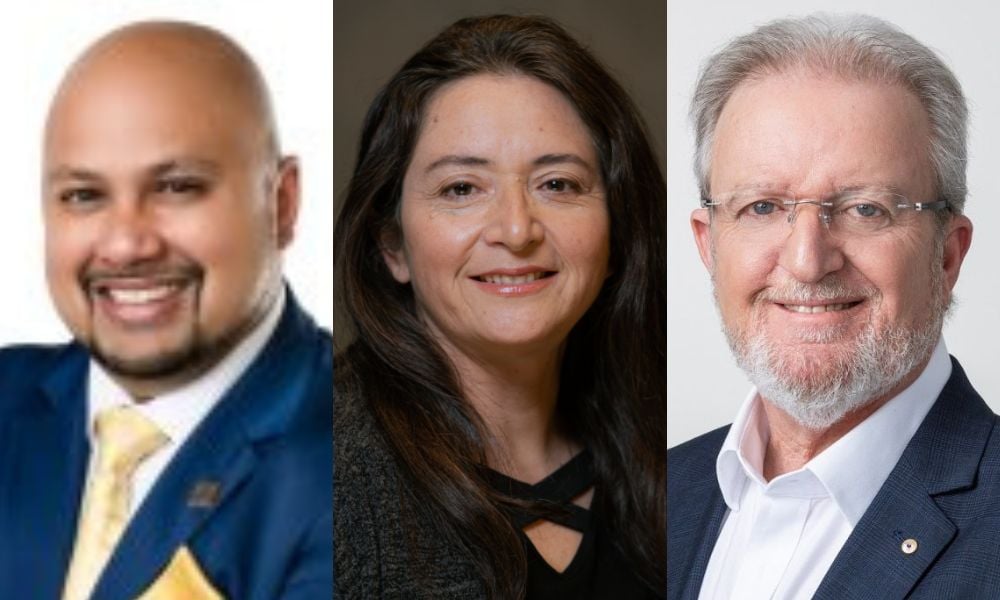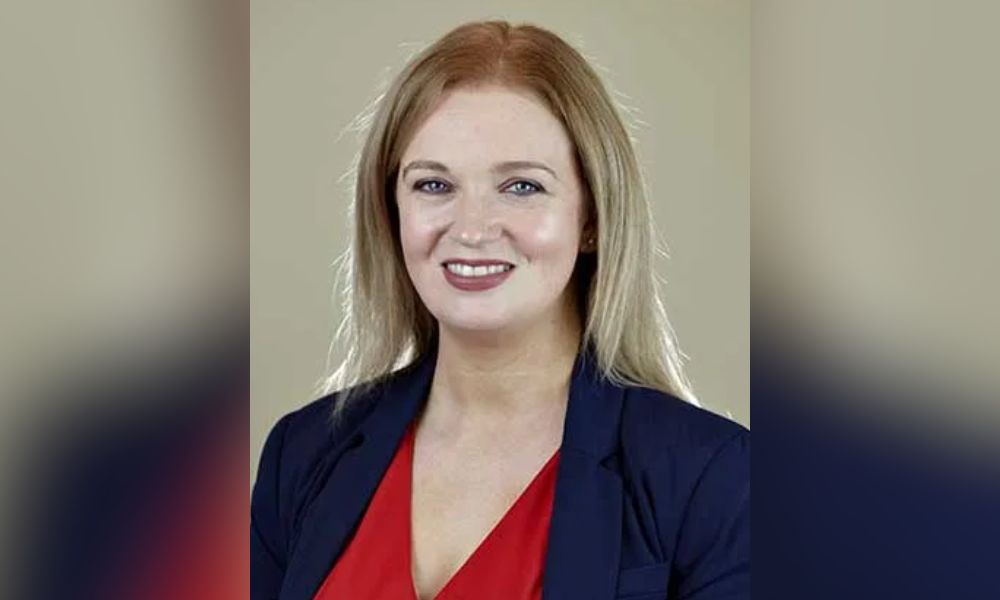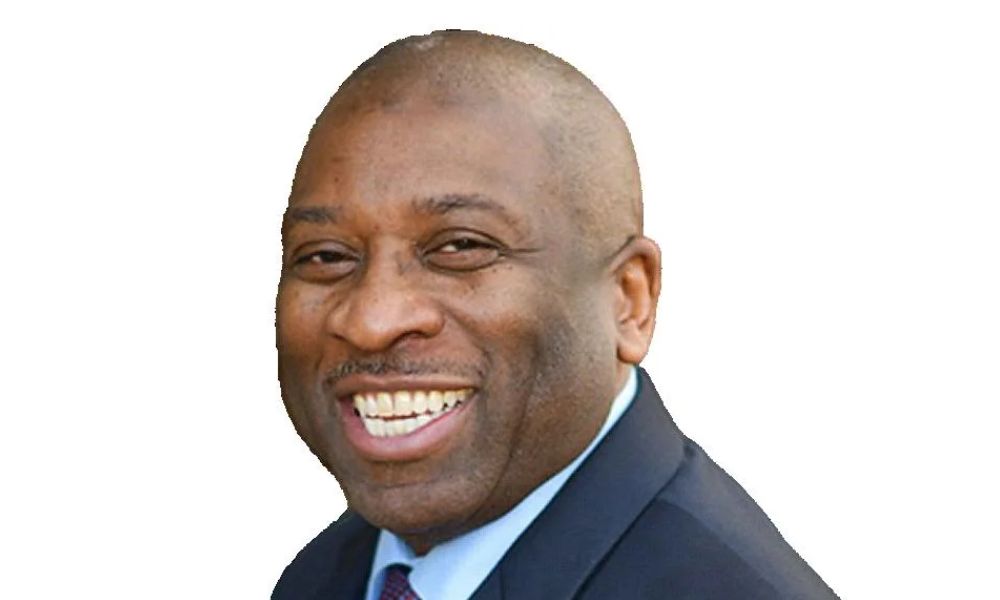Broker licensing, options for struggling borrowers among leading topics at inaugural conference

Global mortgage markets have seen a host of common problems in recent times, from rising interest rates to affordability hurdles – but how are mortgage industries across the world coping with specific challenges, and how do approaches vary in different countries?
Those were some of the questions up for discussion at the International Mortgage Brokers Federation’s (IMBF’s) inaugural 2023 World Summit in Las Vegas, a unique event that convened more than 100 brokers and industry stakeholders from different markets to workshop solutions to various issues.
Approaches to licensing, and what it takes to become a mortgage broker in different countries, were prominent topics at the September 8 conference, hosted by the National Association of Mortgage Brokers (NAMB) at Caesars Palace.
How does broker licensing differ from country to country?
Speaking on a panel alongside board members and other global mortgage professionals, Sadiq Boodoo (pictured top left), president of the Canadian Mortgage Brokers Association – Ontario (CMBA-ON), said he believed licensing requirements in Canada were “not enough” and that more rigorous education should be mandated to become a licensed mortgage agent.
“I personally believe in education, our licence requirements across the board are just not sufficient,” Boodoo said during the Board of Governors panel, featuring members of the IMBF board and other leading international industry figures. “It’s one course: you pay your licensing fee, you get errors and omissions through your brokerage, and you’re up and running.
“There is some continuing education within certain provinces you’re required to do every year or couple of years – it depends on the province – but nothing hefty enough.”
To take the step from agent to broker in Ontario, Boodoo added, an extra course is required, combining self-study with a brief in-class component and a broker exam after two years practicing as an agent.
Carla Giles (pictured top centre), the current chief executive officer of CMBA in British Columbia, highlighted that each province has its own legislation around mortgage brokering, with different requirements depending on where in Canada the prospective broker is located.
There are some parts of the country that are perceived to be more lenient than others in terms of qualifying as an agent or broker – but standards may be rising, she said.
“Things seem to be changing right now,” Giles said. “In Canada, there is a council, the MBRCC [Mortgage Broker Regulators’ Council of Canada] where they’re trying to see if they can standardise that a little bit more.”
It's a wrap from the inaugural International Mortgage Brokers Federation (IMBF) 2023 World Summit in Las Vegas which was combined with @NAMBpros conference and 50th anniversary celebrations. A great weekend of discussion, exchange, presentations & networking for Mortgage Brokers. pic.twitter.com/iNZcB82y5Z
— Brokers Ireland (@BrokersIreland) September 12, 2023
Boodoo said a growing trend is seeing agents and brokers getting licensed in multiple provinces, with the legislation in each province often different in terms of disclosure and suitability requirements.
A similar trend was at play in Australia around the turn of the century, according to IMBF’s global chairman Peter White (pictured top right).
He said that a move to “close the gap in the fence” around 2003-04 had addressed the issue of unscrupulous brokers disappearing from one state and appearing to resume practice in another, ultimately resulting in the introduction of the National Consumer Credit Protection Act (NCCP) in 2009.
“The NCCP is what we run and it’s one federal legislation – one law for everybody around the whole country – and it makes it a lot easier,” White said. “From a regulatory framework, from an auditing and oversight point of view, it’s a lot simpler.”
While unlicensed mortgage brokers – individuals selling mortgages without being registered to do so – have been identified as an issue by regulators in Canada, strict qualification requirements mean that issue isn’t replicated south of the border.
“It’s very odd to have unlicensed brokers,” said Linda McCoy of IMBF’s board of governors. “Here [in the United States], we have licensed and registered [brokers], too.
“The SAFE Act specifically set out what they were going to be, and we have a national mortgage licensing system that takes care of every bit of it. Everybody that is going to be in the mortgage industry, brokers – are all going to have to go through that system to be able to do business.”
The term “licensed” in Australia, White said, “probably gets used a little bit too casually.” That’s because there’s only one level of license for consumer lending, the Australian Credit License (ACL), with only around 4,500 of the country’s approximately 19,500 brokers holding licenses and the remainder listed as “credit reps.”
“We talk about brokers having to be licensed – actually, not [the case],” White said. “The aggregators, the head group, are taking the ultimate responsibility to hold the license. Everybody else is registered with the regulator. So the license holder fills out a specific [form] online that actually notes who their brokers are.”
The license holder has an obligation to make sure everything is functioning correctly from a fraud, auditing and education standpoint, with ultimate oversight and accountability for anything that happens under their umbrella, White said.
“In all honesty, it’s works really well,” he said. “We’ve had to go through a few iterations to get there… And there’s more to come, always more to come. But the general framework keeps everybody accountable.”
Foreclosure, power of sale differences also discussed
Unsurprisingly, with rising interest rates and borrowing costs at play across most markets, the issue of what happens when a borrower encounters difficulty making their monthly payments was also discussed.
In Ireland, Rachel McGovern (pictured immediately below), director of financial services at Brokers Ireland, said a mortgage arrears process put in place by the nation’s central bank is a “lengthy” route deemed problematic by some lenders.

“Even after that process that’s exhausted all avenues, and the borrower won’t interact with them and pay the mortgage, in Ireland it takes a very long time to actually get the property back,” she said.
So it [could] take seven years before they’re able to repossess the property. Also, if a lender goes down that route, then they often get very negative publicity… It is actually a deterrent for lenders looking to come into the Irish market because of that issue.”
The US has also seen recent changes with efforts to find a solution for borrowers who fall behind with their mortgage payments, according to Ernest Jones (pictured below), NAMB president.

“That has changed with the current market because there are programs in place to help,” he said.
In Canada, Boodoo said the foreclosure and power-of-sale process typically sees homeowners keep the remainder of the profit after administration costs and other fees, while a loss on the home means outstanding debt remains with the borrower.
A similar situation in Australia, according to White, means that it’s usually better for struggling homeowners to sell their property rather than go through the foreclosure process.
“Our advice in regards to the market is that you’re better off to do it to yourself than have the bank do it to you,” he said.



